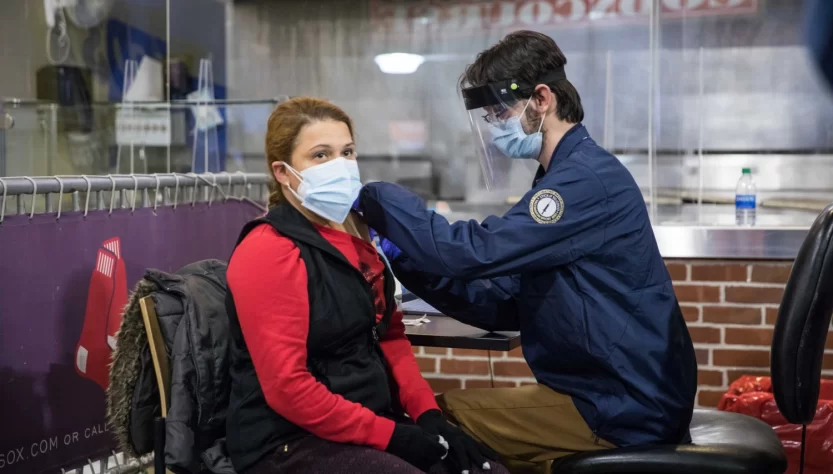The US disease control and prevention centers have published a new study that compared the protection offered by COVID-19 vaccines with that of natural immunity through a previous SARS-COV-2 infection. As with previous investigations on the subject, the new study found that the immune response triggered by vaccines is more robust than the response of an infection, further rushing the myth than having had COVID-19 offers substantial protection against the reinfection.
The CDC published their new Immunity COVID-19 study confirmed by laboratory in their latest weekly morbidity and mortality (MMWR) report, making clear public and scientific skeptics that vaccination offers the best protection against SARS-COV-2, The virus, the virus, the virus that causes COVID-19. The key discovery of the study is simple: unvaccinated adults who previously had COVID-19 are five times more likely than people vaccinated to catch the virus.
The superior protection against COVID-19 was observed in people who received one of the RNM vaccines and it is said that it persists for at least six months after vaccination. Although vaccinated people can still contract the virus, numerous studies have shown that unbound people remain with a much higher risk of hospitalization and death due to the disease.In a statement on the new study, the director of the CDC, Dr. Rochelle P. Walensky, said:
Despite the free availability of three different COVID-19 vaccine options in the US. than the immunity resulting from the vaccine.
Multiple agencies and institutions of good reputation, including CDC and Johns Hopkins University, have tried to educate the public about versus fiction about facts with respect to pandemic and vaccines. However, a combination of poor understanding, politics and erroneous information largely disseminated on social networks has resulted in a public health nightmare for the United States, which is expected to reach 750K COVID-19 deaths for the end of the year.
The last study of the CDC extracted data from the Vision network in adults over 18 who were hospitalized with Covid-19 symptoms. Laboratory tests were used for these symptomatic people to determine if their condition was due to COVID-19 or a different disease. Using this information, the researchers were able to compare the risk of infection in previously infected not vaccinated patients and people who had previously been vaccinated with an RNM vaccine, but who had not previously contracted the virus.
The study focused on patients who were vaccinated or had previous infections of COVID-19 from 90 to 179 days before being hospitalized with Covid-19 symptoms. CDC could confirm the use of laboratory tests that MRNA vaccines offer better protection compared to prior infection with the SARS-COV-2 virus. The agency indicates that the researchers behind the study used electronic health records and vaccine records to verify that patients were vaccinated as stated.
The findings led researchers to declare in their study: “All eligible people must be vaccinated against COVID-19 as soon as possible, including people not previously infected with SARS-COV-2.”This is not the first study that discovers that vaccination offers the public greater protection against COVID-19 compared to the natural immunity developed through a previous infection.
In August, a study was published that analyzed COVID-19 reinfection rates between individuals in Kentucky, some of which were vaccinated after recovering. In comparison to unvaccinated people who had previous infections, researchers found that vaccinated people had better protection against subsequent infections. The studies come in the midst of greater vaccine availability. Recently, an FDA advisors panel recommended that children aged five to 11 receive the vaccine, which is also available as reinforcement shots for people who have a unique risk in serious infections due to health conditions or work environments. The FDA is expected to authorize COVID-19 vaccination for the age group of five to 11 in the near future, after which the CDCs will intervene to determine the eligibility criteria.

